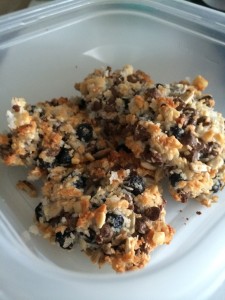 Stress is a very common “condition” to experience that can often lead to a variety of different health conditions, both physical and mental in nature. However, there are treatments that can help, that can be provided through your naturopathic doctor. A naturopathic doctor can use the following therapies to achieve therapeutic benefits in stress: Traditional Chinese Medicine and Acupuncture, Botanical Medicine, Nutrition, Diet and Lifestyle, Hydrotherapy, Homeopathy, and Physical Medicine.
Stress is a very common “condition” to experience that can often lead to a variety of different health conditions, both physical and mental in nature. However, there are treatments that can help, that can be provided through your naturopathic doctor. A naturopathic doctor can use the following therapies to achieve therapeutic benefits in stress: Traditional Chinese Medicine and Acupuncture, Botanical Medicine, Nutrition, Diet and Lifestyle, Hydrotherapy, Homeopathy, and Physical Medicine.
Ultimately, the goal of treatment will be to treat the root cause of the stress. Though your naturopathic doctor cannot provide you with money, vacations, etc., they can help you to better cope with your stress. Some individuals may also have a root cause to their stress that could be easily addressed by a naturopathic doctor’s approach to treating the root cause of disease (e.g. if you are stressed because you are in pain all of the time). Thus, the approach to each individual will be different based on the root cause of your stress. As a result, the following list offers examples as to what goals might be developed for a treatment plan for an individual:
- Correct for deficiencies
- Reduce stress or Improve stress management
- Improve coping mechanisms
- Improve mood
- Alter lifestyle and diet to increase mood and reduce stress
- Improve gut microbiology and digestion
How can Traditional Chinese Medicine (TCM) help?
TCM views the body differently than western medicine. TCM theory suggests that when there is an imbalance in the body system, disease manifests. Each “organ” is associated with an emotion: Heart with joy and is the center of one’s personality, liver with anger, spleen with worry, lungs with grief, and kidneys with fear. As one can see, all of these organs could play a part in stress, and so, individual cases are taken, and the root cause is determined. Once a specific diagnosis is made, a treatment plan is created, and may involve using acupuncture, herbal formulas, diet, or lifestyle, all with the purpose of bringing the body back into a state of balance.
Specifically regarding acupuncture, acupuncture has been shown in some studies to be beneficial for Post – Traumatic Stress Disorder (PTSD) in helping to decrease the symptoms associated with it, for up to 3 months following treatment (http://journals.lww.com/jonmd/Abstract/2007/06000/Acupuncture_for_Posttraumatic_Stress_Disorder__A.7.aspx). Some would even argue that acupuncture specifically can be a relaxing experience, and thus help with stress.
How can Botanical Medicine help?
Botanical formulas have similar effects to medications, often without the side effects, however this is not true for all herbs and plants. Specific herbs or plants will be selected based on their properties and combined based on the specific individual’s presentation and symptoms associated with their stress. For example, one person may need help with sleep, where as one may need help with low mood, both in combination with needing help with coping with their stress. Some beneficial properties that some useful herbs may have include: nervine, anti – depressant effect, sedative and adaptogenic.
Specifically in research, one such example of a botanical that might be used for stress is Rhodiola. In the research, Rhodiola has been used to help individuals in stressful situations to function more effectively. In one particular study, students took Rhodiola prior to being examined, and found that concentration was better, and physical and mental fatigue was much less (http://www.sciencedirect.com/science/article/pii/S0944711300800781).
How can Nutrition and Diet help?
Stress can be severely impacted by one’s diet. In addition, the many ill health effects that can be caused by stress can be caused by poor diet, if not aggravated by it. For example, depression can be aggravated or caused by various nutritional deficiencies. Based on your individual needs, a naturopathic doctor will help you to improve your diet in order to help treat any root causes of stress, as well as prevent ill health effects.
In addition, stress can often cause changes in one’s eating habits, e.g. eating more or less in general, eating more processed foods, etc. This can further aggravate stress and increase it overall (http://www.sciencedirect.com/science/article/pii/S0193953X14000768). A naturopathic doctor can help you to develop a diet that best suits your individual needs, including developing strategies to motivate you to eat a proper diet. In addition, they can correct for any nutritional deficiencies that may be aggravating your stress and overall health.
How can Hydrotherapy help?
Hydrotherapy involves alternating hot and cold water applications to achieve the following goals: promote detoxification and relaxation, increase circulation, improve immune system functioning, promote digestion, and decrease pain. Based on all of the following actions, hydrotherapy could be beneficial for stress based on the different root causes. For example, if an individual is stressed because they are in pain, hydrotherapy may be beneficial by helping to decrease the individual’s pain. An example of this can be seen in studies for hydrotherapy during labour. The hydrotherapy treatments caused a decrease in pain and anxiety, as well as caused an increase in relaxation (http://brn.sagepub.com/content/early/2010/03/29/1099800410361535.abstract).
Hydrotherapy can be performed via a number of methods: constitutional hydrotherapy, sauna, peat bath, Epsom salt baths, or alternating hot and cold showers. These therapies may not be available at every naturopathic doctor’s clinic, but if you are interested in these therapies, they can be performed by myself, Elisha Cook, at the Robert Schad Naturopathic Clinic (416-498-9763).
How can Homeopathy help?
Homeopathy is an energy medicine that involves finite doses of a substance that are diluted in water, which amount to a higher therapeutic dose overall. In this form of medicine, individualized remedies are chosen based on the individual’s specific symptoms and presentation. Each person requires a different remedy based on their unique presentation. Homeopathy does not interact with any medications, making it quite useful especially if you are taking other medications.
Homeopathy is challenging to study in research, but research does exist. In one particular study, homeopathy was used for various psychiatry conditions including anxiety, stress, fibromyalgia, chronic fatigue syndrome, and depression. In the study, the results were not as beneficial for stress or anxiety in general, but proved to be effective for fibromyalgia and chronic fatigue syndrome (which can often cause individuals to become stressed) (http://europepmc.org/abstract/MED/21733480).
How can Physical Medicine help?
Physical medicine involves a number of different potential therapies. These therapies might include massage, naturopathic manipulation, ultrasound, laser therapy, electroacupuncture, or Gua Sha. The general effect of these therapies includes relaxation, increased circulation, decreased pain, and decreased inflammation. Similar to what was mentioned above, stress may be decreased or alleviated based on these potential effects.
Research has shown that patients undergoing cancer treatment may benefit from massage therapy by helping them to experience less stress as well as having decrease stress hormone circulating (http://link.springer.com/article/10.1007/s00737-009-0143-9).
How can Lifestyle changes help?
Various lifestyle factors can play a role in stress. By improving sleep, exercise, scheduling, and coping mechanisms, it is possible that some individuals may have reduced stress, and stressful experiences in general. In addition, the way that an individual thinks can influence stress significantly. By addressing negative thought patterns, poor sleep patterns, lack of exercise, or coping mechanisms, one may have decreased stressful experiences overall. Naturopathic doctors are trained to help individuals through lifestyle counselling, and can use methods use as motivational interviewing or cognitive behavioural therapy to do so.
Research has demonstrated that sleep can have a significant impact on one’s stress response. For example, individuals who had better sleep, were less likely to experience stress (http://psycnet.apa.org/journals/hea/26/3/288/).
Have you benefitted from reading this blog? Know someone that would benefit as well? Share, Like, Comment, or Tweet this article, and let me know what you think.
Some of the information provided above may not be appropriate for everyone, please consult with your doctor before trying any of the above. If you are interested in Naturopathic Medicine and wanting a different approach to your health care needs, please book an appointment with Elisha Cook at the RSNC (416-498-9763), and let me help you achieve your health goals.



